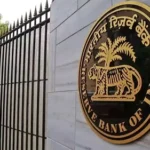The Reserve Bank of India (RBI) has imposed a monetary penalty of ₹27.30 lakh on IndusInd Bank Limited for non-compliance with regulatory directions concerning deposit interest rates. This action underscores the RBI’s commitment to enforcing regulatory standards within the banking sector.
Details of the Non-Compliance
An RBI inspection revealed that IndusInd Bank had opened savings accounts for entities not eligible for such accounts, thereby violating the regulatory norms. The specific nature of these ineligible entities has not been disclosed, but the breach pertains to the bank’s failure to adhere to the stipulated guidelines for account openings.
RBI’s Enforcement Action
In response to these findings, the RBI exercised its authority under the Banking Regulation Act, 1949, to impose the penalty. The central bank clarified that this action is based on deficiencies in regulatory compliance and is not intended to pronounce upon the validity of any transaction or agreement entered into by the bank with its customers.

IndusInd Bank’s Response
As of now, IndusInd Bank has not issued a public statement regarding the penalty. In previous instances of regulatory action, banks have typically reviewed the RBI’s findings and taken corrective measures to address compliance gaps. It is anticipated that IndusInd Bank will undertake similar steps to strengthen its internal controls and ensure adherence to regulatory norms.
Historical Context of Penalties on IndusInd Bank
This is not the first instance of IndusInd Bank facing penalties from the RBI. In July 2022, the RBI imposed a penalty of ₹1 crore on the bank for non-compliance with certain Know Your Customer (KYC) norms.
Earlier, in December 2017, a penalty of ₹3 crore was levied for breaching rules on income classification norms.
These recurrent penalties highlight ongoing challenges in the bank’s compliance framework.
Implications for the Banking Sector
The RBI’s enforcement actions serve as a reminder to all banks about the importance of strict adherence to regulatory guidelines. Non-compliance can lead to financial penalties and reputational damage, emphasizing the need for robust internal controls and regular compliance audits.
Conclusion
The imposition of a ₹27.30 lakh penalty on IndusInd Bank by the RBI highlights the critical importance of regulatory compliance in the banking sector. It serves as a cautionary tale for other financial institutions to diligently adhere to established norms and maintain the integrity of their operations.




















